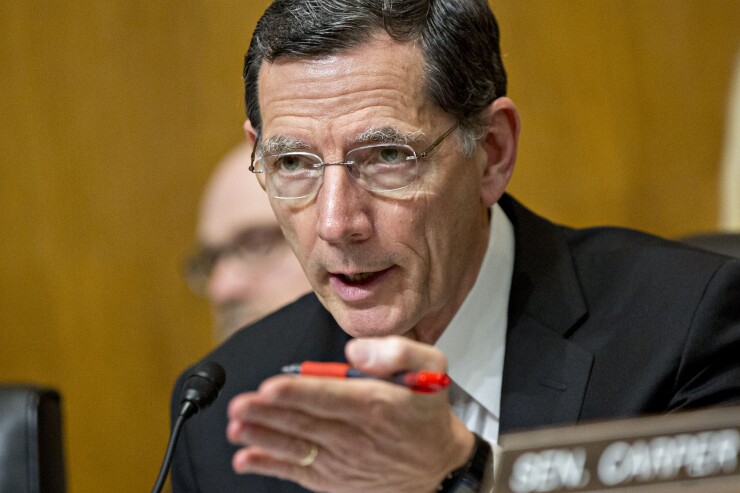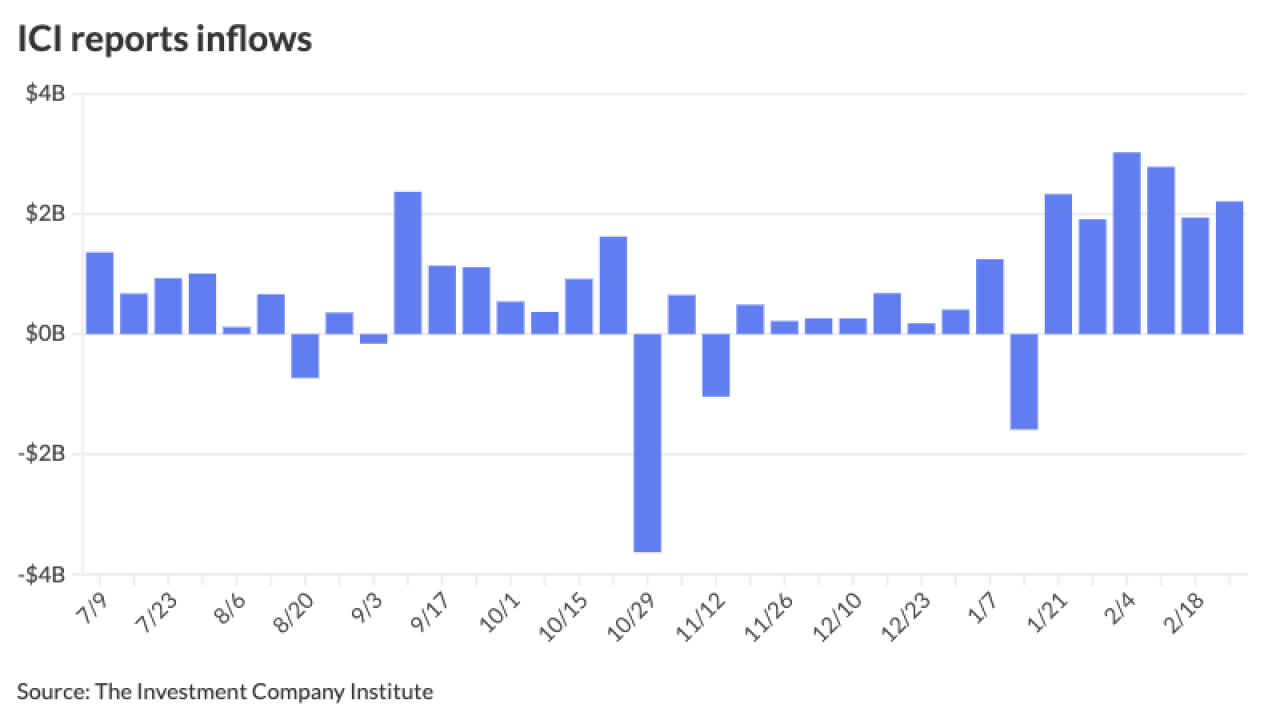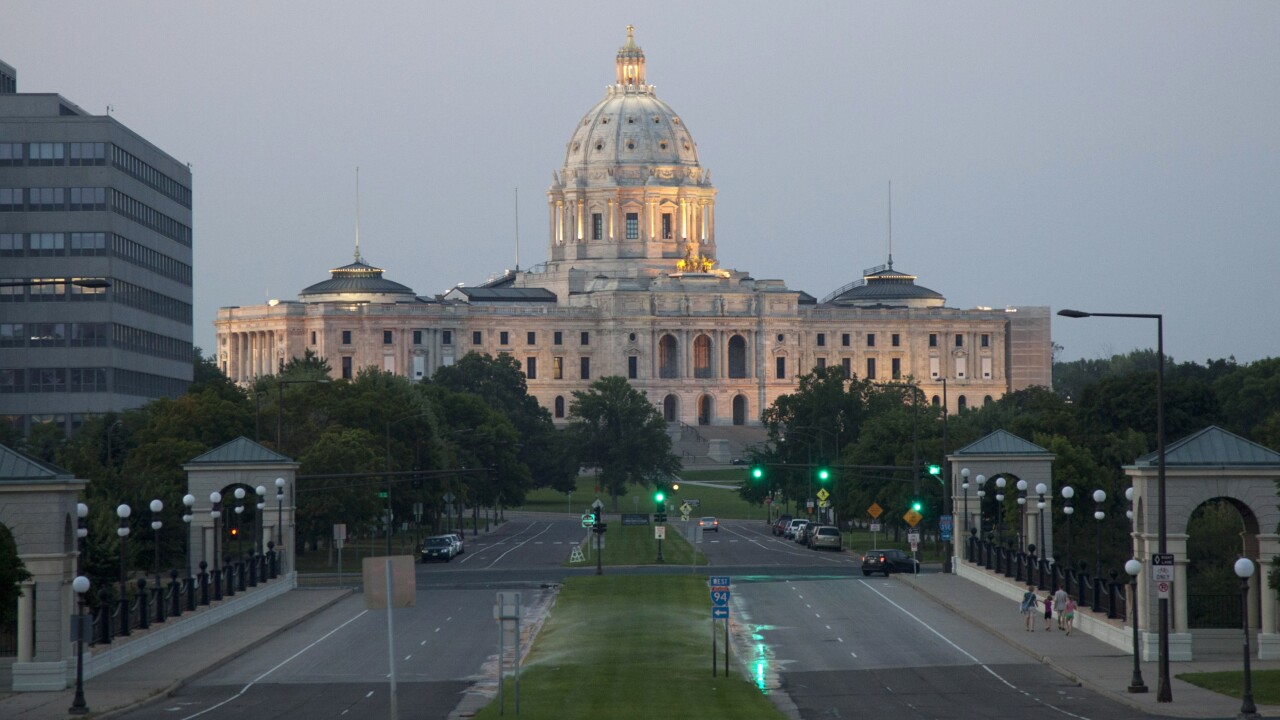Four key senators released a bipartisan federal highway bill Monday that would increase spending 27% to $287 billion over five years beginning in October 2020.
The bill builds upon prior initiatives by the Trump and Obama administrations to approve federal permits within two years and establishes competitive grants programs of $6 billion for bridge repair and $1 billion for refueling stations for electric and other alternative fuel vehicles.
Just over 90% of the overall authorization, $259 billion, would go to formula aid for state highway programs.
The $6 billion fund for repairing bridges in poor condition would include $3.3 billion from the Highway Trust Fund. Grants would be awarded on a competitive basis with at least 50% of the money awarded to large bridge projects costing $100 million or more.
In addition, $5.5 billion would be set aside for Nationally Significant Freight and Highway Projects under a program known as “INFRA.”

Senate Environment and Public Works Committee Chairman John Barrasso, R-Wyo., and the committee’s ranking Democrat, Sen. Tom Carper of Delaware, planned to bring their bill to a committee vote Tuesday and work with the Senate Finance Committee in the coming weeks on finding ways to finance the additional spending.
Two other committee members, Sens. Shelley Moore Capito, R-W.V., and Ben Cardin, D-Md., also are original cosponsors of the bill.
“To responsibly invest in our roads and bridges, drivers of all vehicles must contribute to maintain our highways,” Barrasso and Carper said in a joint op-edit published by CNN. “We will partner with the Senate Finance Committee to identify funding to pay for this legislation, responsibly.”
The federal highway program and 80% of all public transportation program have been funded with revenues from the Highway Trust Fund, with 85% to 90% of that derived from federal taxes on fuel, truck and tire taxes, according to the nonpartisan Congressional Research Service.
The Senate Finance Committee has not yet set a timetable for considering future financing for the HIghway Trust Fund and the Senate will begin its August recess later this week.
But the early consideration by the Senate committee of a reauthorization more than a year in advance drew praise Monday from the American Association of State Highway and Transportation Officials.
“In addition to focusing on safety and resiliency of our highway infrastructure, 90% of the funding in EPW’s bill is provided directly to states by formula which ensures flexibility to best meet each state’s unique highway investment needs,” said Jim Tymon, AASHTO’s executive director. “For state DOTs, it is absolutely crucial to get the next federal transportation bill done on time, without resorting to a series of short-term program extensions. When federal funds are predictable and stable, state DOTs are able to fully focus attention on delivering critical projects that improve safety, quality of life, and economic opportunities for everyone.”
The legislation would be a successor to the FAST Act, which expires Sept. 30, 2020.
The House Transportation and Infrastructure Committee has not yet released its proposal for Highway Trust Fund reauthorization.
The FAST Act provides on average $45 billion annually of federal aid for highways, with 92.5% are distributed to the states via formula.
The states have nearly complete control over the use of these funds, within the limits of federal planning, eligibility, and oversight rules, according to CRS. Money is not provided up front. A state is reimbursed after work is started, costs are incurred, and the state submits a voucher to the Federal Highway Administration.
The highway program focuses on highway construction and planning, and does not support operations or routine maintenance.
The federal share of project costs is generally 80%, but 90% for Interstate System projects. In general, projects are limited to a designated system that includes roughly 25% of all U.S. public road mileage.
The FAST Act authorized an average of $12.2 billion annually for the federal public transportation program with most of that distributed by formula to local transit agencies. The largest discretionary program is the Capital Investment Grants Program, more widely known as “New Starts,” which supports construction of new local rail, bus rapid transit, and ferry systems, and the expansion of existing systems.





